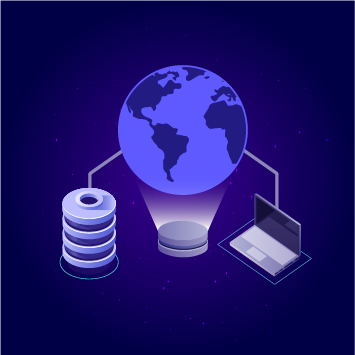When it comes to web scraping, the spotlight often shines on clever code, powerful libraries, and the thrill of extracting data like a digital archaeologist. But let’s take a moment to appreciate the unsung hero quietly working behind the scenes: the HTTP proxy. Without it, your scraping adventures could come to a screeching halt faster than you can say "403 Forbidden." What’s an HTTP Proxy, Anyway? Think of an HTTP proxy as your internet middleman. It’s like sending a friend to buy snacks for you at a store where you’ve been banned for showing up too often. The proxy takes your requests, forwards them to the target website, and then delivers the goods (data) back to you. All the while, your real identity (or IP address) stays hidden in the shadows, sipping coffee and grinning smugly. Why Are Proxies a Big Deal in Web Scraping? Websites are like bouncers at an exclusive club—they don’t want you showing up too often or looking suspicious. If they catch you scraping their data excessively or from a single IP address, they’ll block you faster than your ex on social media. Enter HTTP proxies, your ticket to staying under the radar. By rotating through a pool of proxies, you can make requests appear as if they’re coming from different locations. One minute you’re in Paris; the next, you’re in Tokyo. Voila! You’re suddenly an international data ninja. Types of Proxies: Pick Your Weapon Not all proxies are created equal, and choosing the right one can make or break your scraping game: 1. Free Proxies: These are like free samples—tempting but often unreliable. They’re slow, overused, and might just stop working mid-scrape, leaving you crying into your keyboard. 2. Datacenter Proxies: Fast and efficient, these are the Ferraris of proxies. But beware—websites can sometimes spot them because they lack the "human touch" of residential IPs. 3. Residential Proxies: These use real IP addresses from actual devices. They’re stealthy but come at a premium price. Think of them as your VIP pass to scrape undetected. 4. Rotating Proxies: These are the ultimate shapeshifters. They switch IPs after every request or session, making you virtually untraceable. Pro Tips for Proxy Success - Don’t Overdo It: Even with proxies, sending too many requests too quickly is like waving a giant red flag that screams, “I’m a bot!”- Respect Robots.txt: Just because you *can* scrape doesn’t mean you *should*. Play nice with websites and follow their rules.- Test, Test, Test: Not all proxies will work with every site. Run tests to ensure compatibility before diving into large-scale scraping. Final Thoughts HTTP proxies might not be glamorous, but they’re the backbone of successful web scraping. They keep you anonymous, unblock access, and make sure your data-gathering escapades don’t end in digital disaster. So next time you’re marveling at your beautifully scraped dataset, give a little nod to your trusty HTTP proxy—it’s earned it. Happy scraping! And remember: with great proxy power comes great responsibility.
2025-02-25





